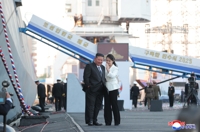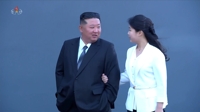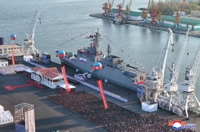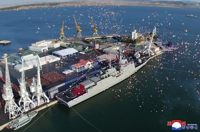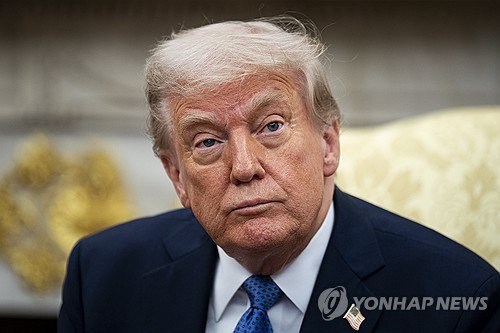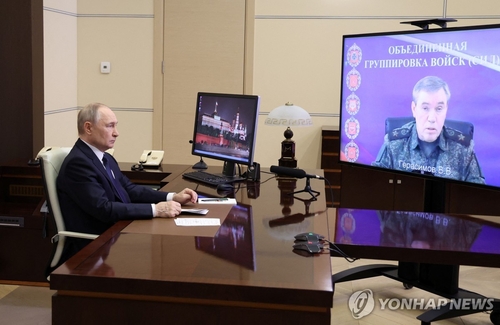(Yonhap Interview) UNHCR official says S. Korea's support 'lifesaver' for African refugee crisis amid Trump's aid cuts
By Yi Wonju
SEOUL, April 25 (Yonhap) -- A top official at the U.N. refugee agency called on South Korea to boost humanitarian aid to help the refugee crisis in East Africa amid a fallout from the Trump administration's aid cuts.
In an interview with Yonhap News Agency in Seoul on Friday, Mamadou Dian Balde, regional director for the East and Horn of Africa and the Great Lakes at the Office of the U.N. High Commissioner for Refugees (UNHCR), stressed the need for South Korea's continued engagement both at the government-level and as individuals since Trump's suspension of humanitarian aid.
"That's why we need the support of countries like Korea," said Balde, who is on a four-day visit to Seoul to attend a forum on forcible displacement in Africa, jointly hosted by Yonhap News Agency and the U.N. agency.
"The government of South Korea has been very supportive and the people of South Korea have been very supportive," he said, especially calling individual donors a "lifesaver."
Shortly after President Donald Trump's inauguration, the U.S. administration announced its decision to cut back around US$60 billion in funding to U.N. agencies, including the UNHCR, and terminate 90 percent of foreign aid contracts.
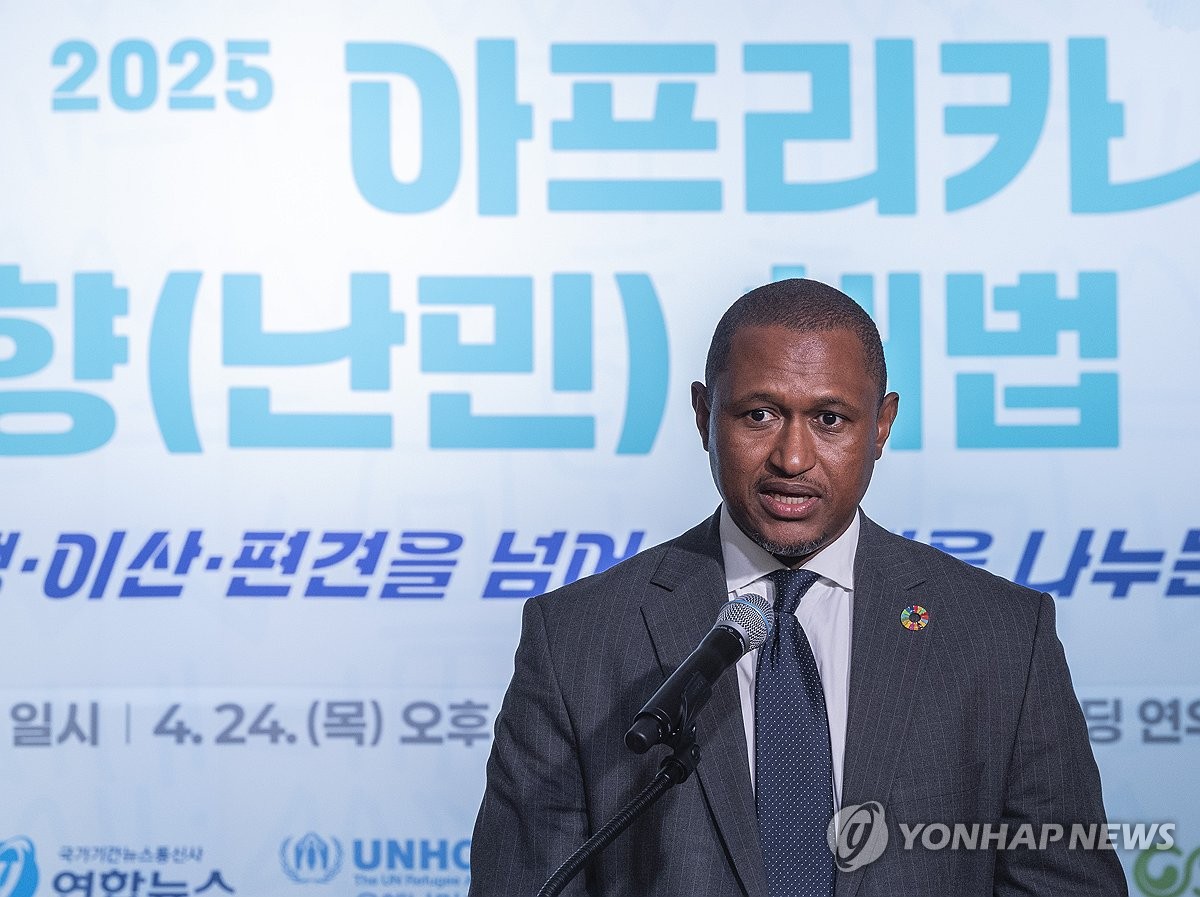
Mamadou Dian Balde, regional director for East and Horn of Africa and Great Lakes at the United Nations High Commissioner for Refugees (UNHCR), speaks at the headquarters of Yonhap News Agency in Seoul on April 24, 2025, during a global forum, co-hosted by Yonhap and the UNHCR to address the issue of forced displacement in Africa, where more than 100 million people have lost their homes due to war, violence or persecution. (Yonhap)
Highlighting South Korea's unique position, with experience of both displacement and recovery from the 1950-53 Korean War when more than a million people were displaced, Balde appealed for increased support.
"Korea knows better than any other country what it is to be faced with hardship but also Korea has experience on how you get out of poverty and how you can leverage technology," he said.
As the Sudan crisis marked its second anniversary last week, Balde particularly stressed attention to "the largest displacement crisis in the world" with around 13 million displaced from their homes, or nearly one-third of the entire population.
"So this act of barbarism attacking people in their own humanity should stop because we've seen acts of rape, act of violations, killing because people don't look like you," he said. "It just needs to stop."
In addition to financial support, Balde called for stronger partnerships with South Korea's private and technology sectors to improve digital access for the displaced, especially among the youth.
"I think technology plays an important role and there is no better place in the world than Korea to be able to bring together youth populations, technology and social cohesion and then to help people thrive -- for the refugees and their host population," he said.
When asked about his views on how African crises often receive less spotlight compared to other global conflicts, he replied, "I think every crisis deserves support."
"Global is local and local is global," he said, emphasizing the interconnected nature of today's crises and recognizing the significance of efforts like Yonhap's Ubuntu Initiative.
"So I think it's important to have Yonhap signing this MOU with UNHCR ... and the (Ubuntu) initiative that you have because we need to recognize that we are all interlinked," he said.
Last November, Yonhap News Agency launched the Ubuntu Initiative, the first-ever Africa-focused team created by a South Korean news outlet. Since then, the team has been working to raise awareness and understanding of Africa in Korean society.
Returning to Seoul for the first time in 16 years since he worked here as a protection officer for the UNHCR office in Seoul from 2006-2009, Balde noted the advancements South Korea has achieved since then, including its position in the global community.
Calling South Korea a "respected voice of the international community," he urged Seoul to use its seat on the U.N. Security Council to spotlight underrepresented crises in Africa -- where the number of refugees continues to rise even as global support declines.
Balde now oversees refugee operations in 11 East African countries, including Sudan, South Sudan, Ethiopia and Uganda, and serves as the regional refugee coordinator for the Sudan crisis.
julesyi@yna.co.kr
(END)
 BLACKPINK's Rose continues Billboard Hot 100 streak with 'APT.'
BLACKPINK's Rose continues Billboard Hot 100 streak with 'APT.'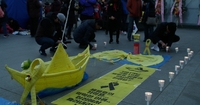 (Movie Review) 'Reset' echoes unanswered questions of Sewol tragedy, offers few in return
(Movie Review) 'Reset' echoes unanswered questions of Sewol tragedy, offers few in return (Movie Review) 'The Old Woman With the Knife': more than action, poignant look at aging
(Movie Review) 'The Old Woman With the Knife': more than action, poignant look at aging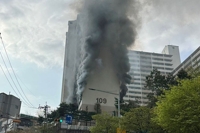 1 dead, 11 injured in suspected arson at apartment building in Seoul
1 dead, 11 injured in suspected arson at apartment building in Seoul Rubio announces State Dept. reorganization plan reducing democracy, human rights diplomacy
Rubio announces State Dept. reorganization plan reducing democracy, human rights diplomacy
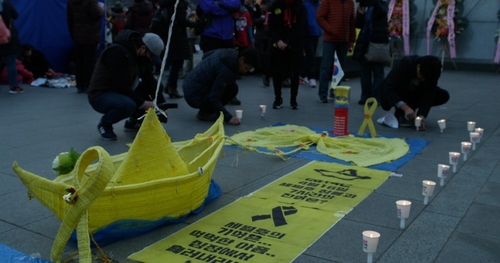 (Movie Review) 'Reset' echoes unanswered questions of Sewol tragedy, offers few in return
(Movie Review) 'Reset' echoes unanswered questions of Sewol tragedy, offers few in return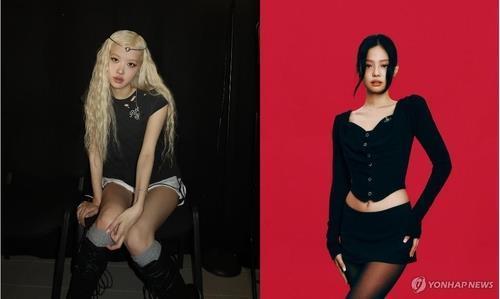 BLACKPINK's Rose continues Billboard Hot 100 streak with 'APT.'
BLACKPINK's Rose continues Billboard Hot 100 streak with 'APT.' (Movie Review) 'The Old Woman With the Knife': more than action, poignant look at aging
(Movie Review) 'The Old Woman With the Knife': more than action, poignant look at aging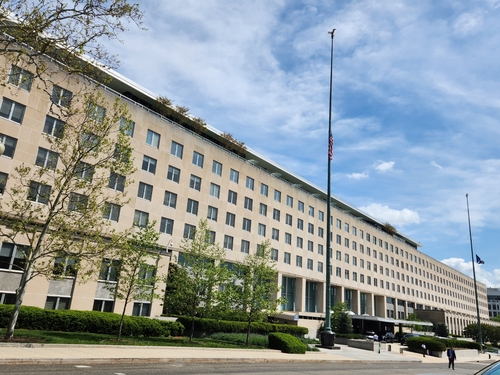 Rubio announces State Dept. reorganization plan reducing democracy, human rights diplomacy
Rubio announces State Dept. reorganization plan reducing democracy, human rights diplomacy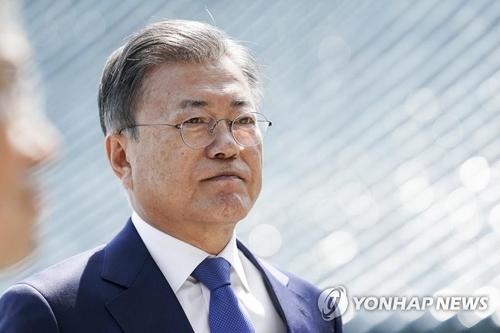 (LEAD) Ex-President Moon indicted over alleged bribery
(LEAD) Ex-President Moon indicted over alleged bribery
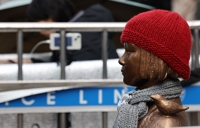 Comfort woman's family wins suit against Japan in S. Korea
Comfort woman's family wins suit against Japan in S. Korea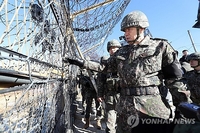 S. Korean soldier accidentally fires machine gun at inter-Korean border
S. Korean soldier accidentally fires machine gun at inter-Korean border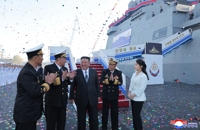 (2nd LD) N. Korea unveils new destroyer, pledges to strengthen naval power
(2nd LD) N. Korea unveils new destroyer, pledges to strengthen naval power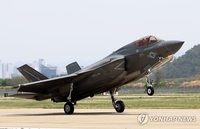 U.S. military considering permanent deployment of F-35 fighter jets to S. Korea: source
U.S. military considering permanent deployment of F-35 fighter jets to S. Korea: source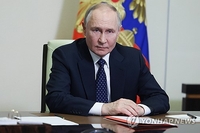 Russia confirms for 1st time N.K. troop dispatch to Ukraine war: reports
Russia confirms for 1st time N.K. troop dispatch to Ukraine war: reports

